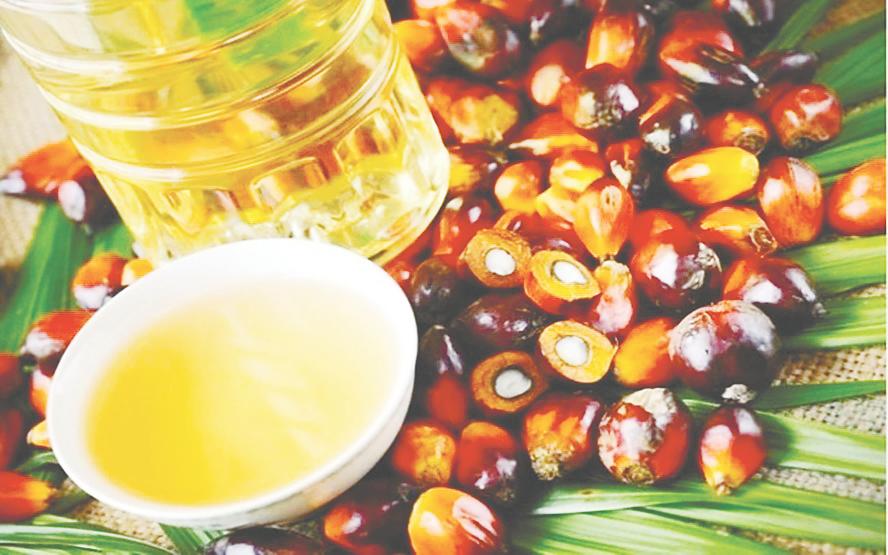PETALING JAYA: Industry experts opine that an increase in Indonesia’s crude palm oil (CPO) export levy will enhance demand for Malaysian CPO, rendering it more competitively priced.
According to TA Securities, demand for Malaysian palm oil could rise if Indonesia implements its plan to raise the export levy to support a higher biodiesel usage mandate.
The research house said that raising the export levy to 10% would increase the price of Indonesian CPO by US$26.49 per tonne, making it even more expensive than Malaysian palm oil. It noted that the price of palm oil from Indonesia currently stands at a premium of US$146.30 per tonne compared to Malaysia’s.
“We believe that the relatively high Indonesian CPO export tax and duty could drive demand towards Malaysian CPO, supporting its price and market share,“ it said.
Indonesia imposes an export levy on CPO and other palm oil products to fund its biodiesel programme, specifically the B40 mandate, which aims to increase the blend of palm-based biofuel in diesel to 40%.
In December 2024, the Indonesian government announced plans to raise the CPO export levy from 7.5% to 10% to support higher subsidies for the biodiesel programme. However, the implementation of the B40 mandate has faced delays, and industry observers anticipate a gradual rollout due to funding challenges and technical hurdles.
SGS lead auditor Mohd Syafiq Zawawi said that with the new implementation by Indonesia, buyers and customers may turn to Malaysia, where export costs will be lower. “This is especially true for price-sensitive markets like India, China, and Pakistan, where buyers want to reduce costs,“ he told SunBiz.
Mohd Syafiq said the palm oil industry in Malaysia may then focus on improving production and increasing yields to meet growing demand and boost earnings. “Furthermore, the industry can also start focusing on investing more in sustainability and new technology to maintain production yields and support future volume growth.”
Echoing Mohd Syafiq, Malaysia Productivity Corporation consultant Anis Marina Abd Wahab said Indonesia’s higher export levy may make Malaysian CPO relatively more price competitive in the global market.
She said this could potentially shift demand towards Malaysian producers, especially among buyers seeking to reduce costs.
“The Malaysian palm oil sector could benefit from this increased demand, boosting export revenue and enhancing its role in the global supply chain. Malaysia can position itself strategically as a stable and reliable supplier of CPO, leveraging its robust infrastructure and commitment to sustainability,“ she added.
KLK Alami Edible Oils Sdn Bhd sales and marketing manager, refinery division Aslam Hizir said Malaysia’s CPO market share will likely increase with Indonesia’s new export levy. “As Indonesian CPO becomes pricier, buyers might shift their demand to Malaysian CPO, potentially increasing Malaysia’s market share in the global palm oil market,“ he added.
Meanwhile, Roundtable Sustainability Palm Oil certification manager Mohd Razaleigh Mohamad said Indonesia’s decision to increase the CPO export levy will significantly impact global demand for Malaysian CPO. “This price difference could drive global buyers to turn to Malaysia for their palm oil needs.”
IcebergX Sdn Bhd senior proprietary trader David Ng agreed that any increase in Indonesia’s export duty on palm oil would make Malaysia palm oil prices more competitive. “Thus, we will see higher demand for Malaysia palm oil given the lower prices,“ he said.
The anticipated rise in demand presents an opportunity for Malaysia to strengthen its position as a stable and reliable CPO supplier in the global market. Malaysia, the world’s second largest producer and exporter of crude palm oil, could enhance its competitiveness while leveraging its existing infrastructure and commitment to sustainable practices while capitalising on Indonesia’s higher export costs.
As global buyers seek more affordable alternatives, Malaysian CPO producers stand to benefit from increased sales and stronger market positioning in the palm oil industry.









